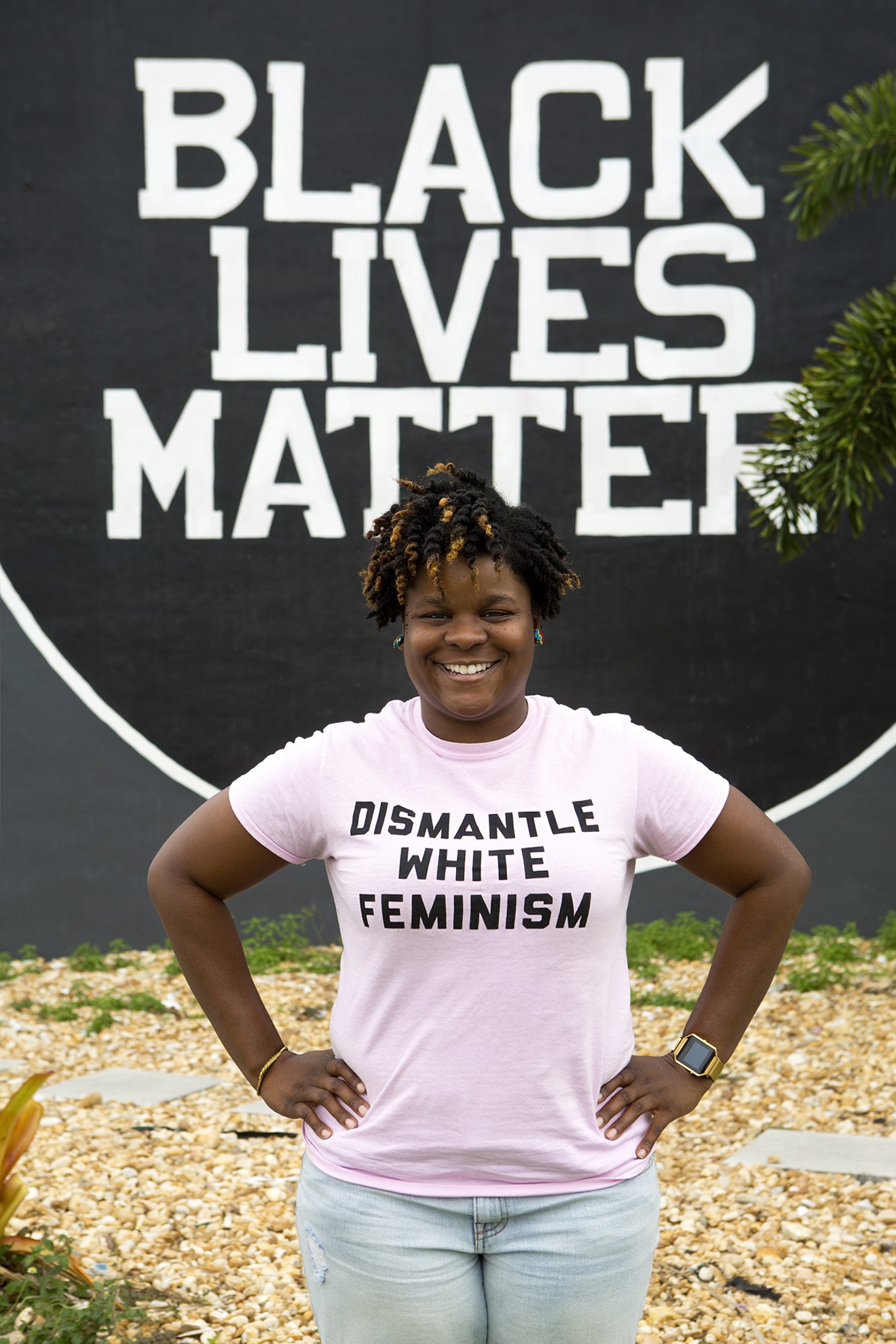When 14-year-old Martin Lee Anderson was murdered by police in Panama City in 2006, Jasmen Rogers was just starting college at Florida State. Then only 17, she remembers it as the first time she understood "wow, the world isn't fair for black people."
Eleven years later, Rogers is one of South Florida's most tireless community organizers. She works not only on the Femme Agenda at the Miami Workers Center but also with the Black Lives Matter Alliance Broward. After graduating from FSU at age 19, Rogers worked in Sarasota with the Department of Children and Families. She moved back to her native South Florida with her parents in December 2014 and saw I-75 shut down by Black Lives Matter protesters. Whatever that power is, I need to be a part of it, she remembers thinking.
That month, she helped interrupt Fort Lauderdale's Winterfest Boat Parade during a protest and was arrested after being hit by a car. Authorities said she was wrong for standing in the street. "This world does not care about black people," Rogers says. "This world does not care about civil disobedience, protest, and fighting injustice."
She hasn't stopped since. Amid growing national scrutiny of police brutality, Rogers reminds us of the severity of South Florida's problem. She organized protests after the murders of Lavall Hall, Jermaine McBean, and others. In 2015, Broward County led the nation in police killings of unarmed black citizens. "What are we doing wrong that we can't have uprisings like in Ferguson or Baltimore?" she asks.
Rogers uses tactics such as consciousness raising, women's circles, and courses on the history of civil disobedience to mobilize South Floridians against these issues.
By teaching the community that issues such as immigration, gender violence, and police brutality are "all on the same arm of state violence," Rogers strives to chip away at the deeply ingrained anti-blackness in the area.
Last month, she helped organize the Miami March for Black Women, where hundreds united in protest and celebration. "It makes me hopeful that people are ready to have that conversation about black women," Rogers says. "I'm really excited that black women in South Florida found that space, to be able to come and show up and celebrate their blackness and womanness at once and not have to pick a side."
Going forward, Rogers is working on a campaign to bring comprehensive sex education to Miami-Dade schools. She is also organizing events to empower black women and community leadership training. "Rich people can't determine what poor people need," she says. "Men can't determine what women need. We need to have our community members take the charge on leading policy and what needs to happen in our communities."











